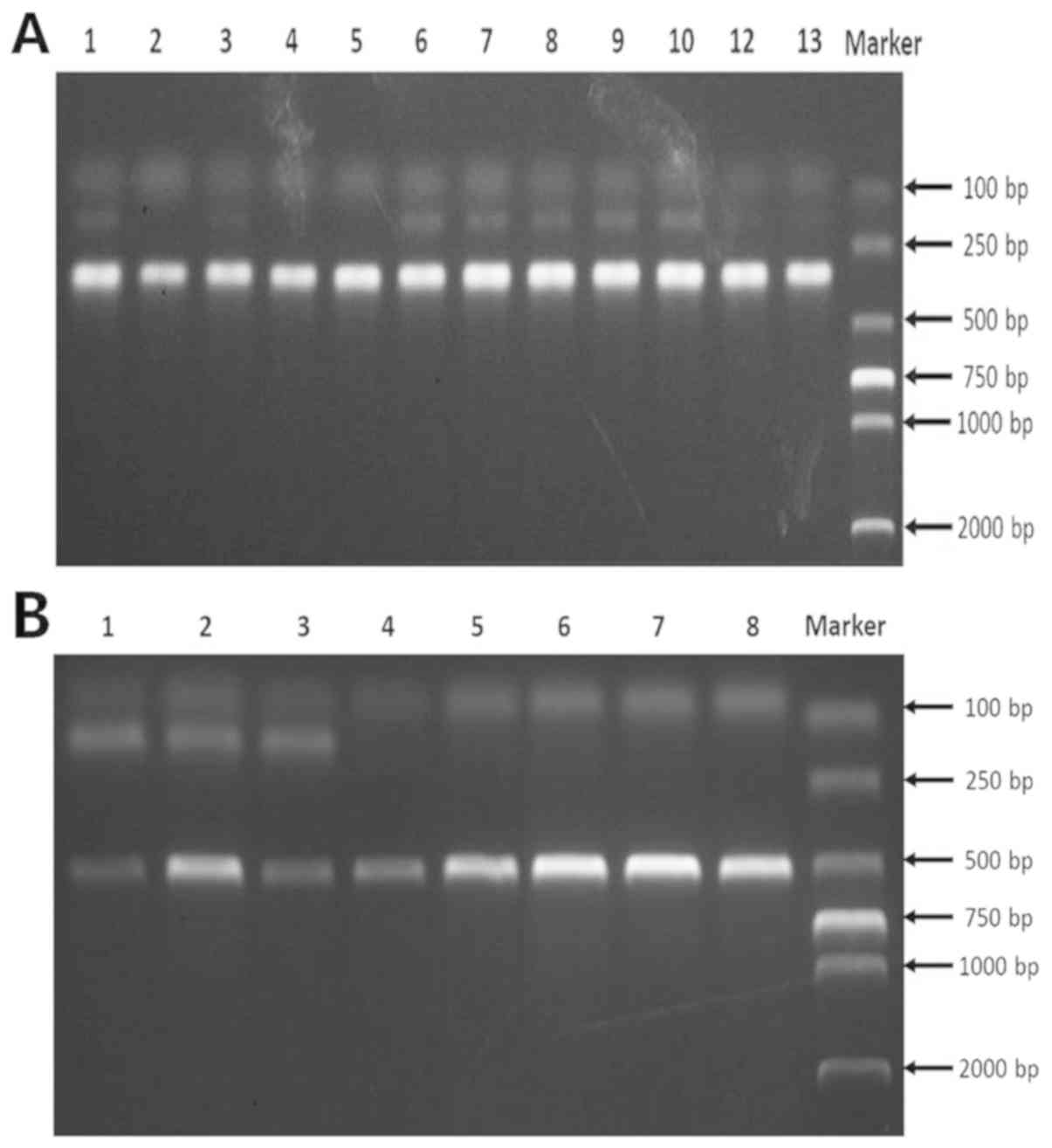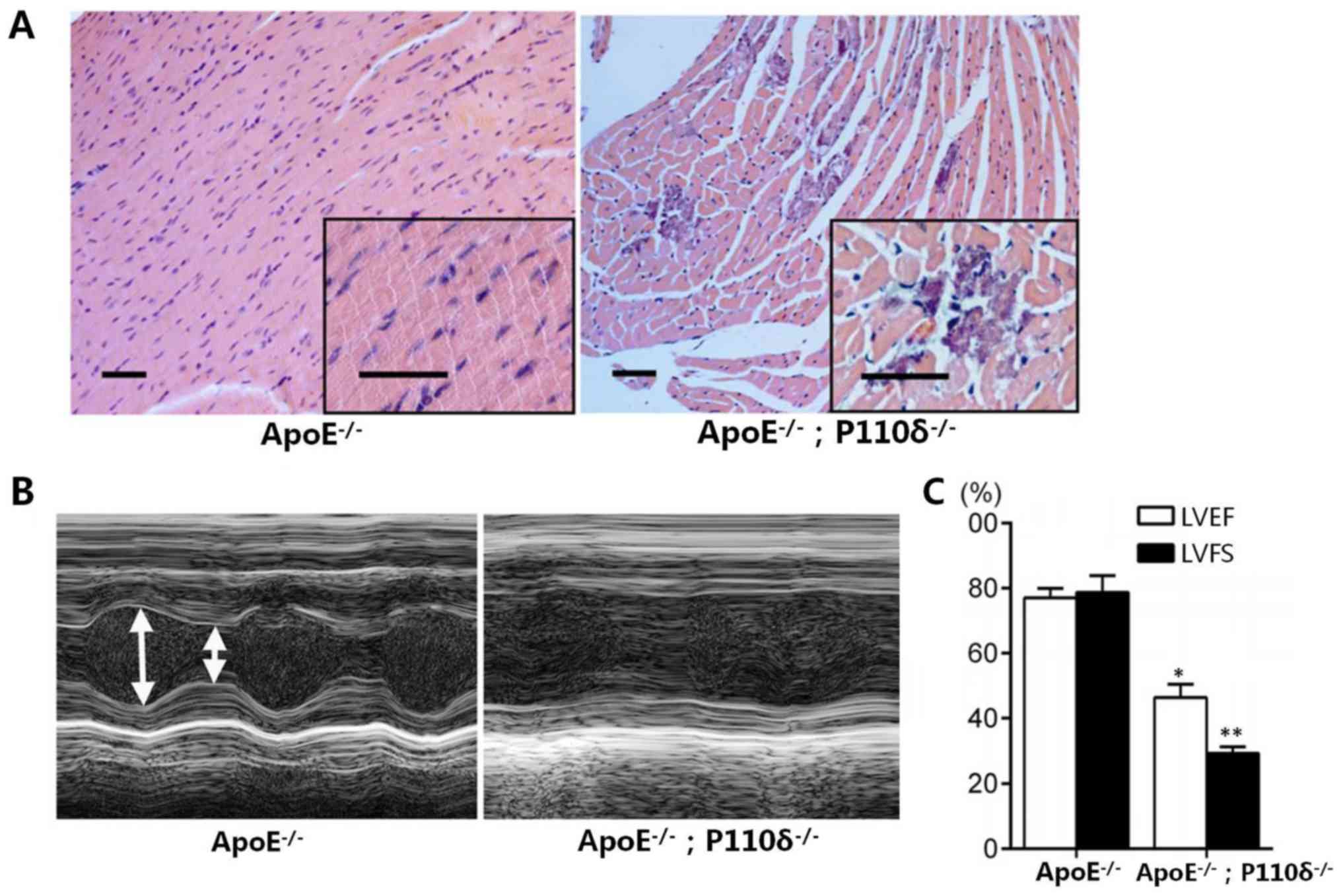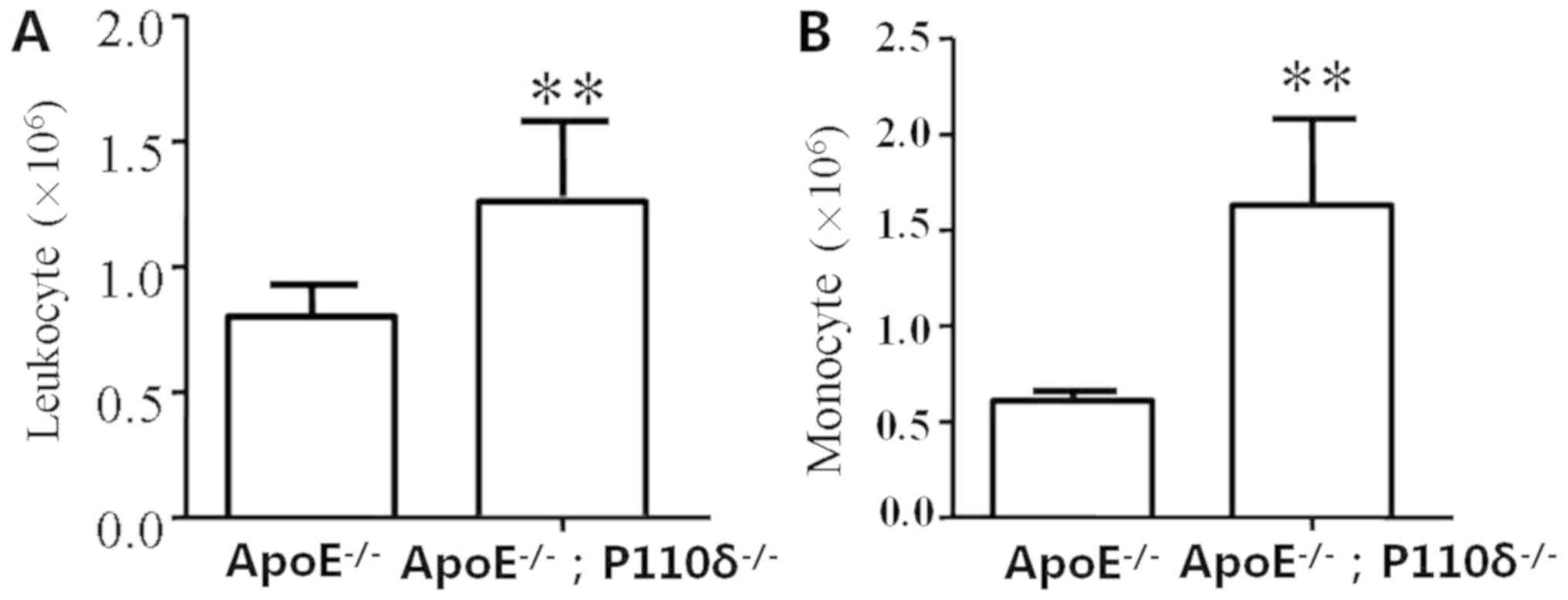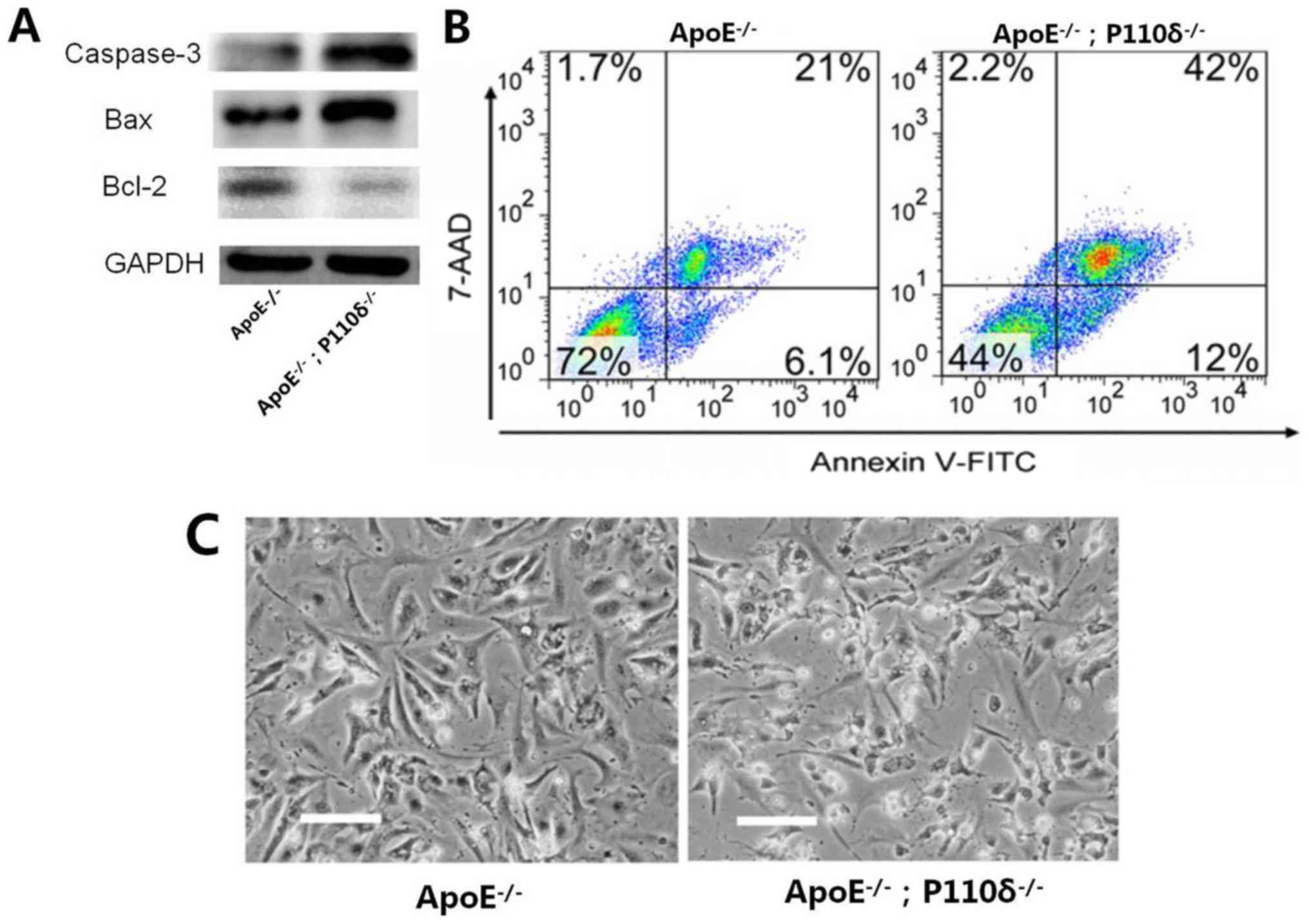|
1
|
Mensah K and Anderson JR: Diagnostic
investigations of adult cardiac disease. Surg (Oxford). 36:52–56.
2018. View Article : Google Scholar
|
|
2
|
Chen QQ, Chen M, Zhang LH, Zeng Y, Qi-Cai
L, Yang LQ and Lin XC: Costimulation blockade by combining CTLA4Ig
with anti-CD40L mAb markedly inhibits the inflammatory response of
experimental autoimmune myocarditis. Eur J Inflamm. 15:28–34. 2017.
View Article : Google Scholar
|
|
3
|
Ramos C, Becerril C, Montaño M,
García-De-Alba C, Ramírez R, Checa M, Pardo A and Selman M: FGF-1
reverts epithelial-mesenchymal transition induced by TGF-{beta}1
through MAPK/ERK kinase pathway. Am J Physiol Lung Cell Mol
Physiol. 299:L222–L231. 2010. View Article : Google Scholar : PubMed/NCBI
|
|
4
|
Adamson IY, Bowden DH, Cote MG and Witschi
H: Lung injury induced by butylated hydroxytoluene: cytodynamic and
biochemical studies in mice. Lab Invest. 36:26–32. 1977.PubMed/NCBI
|
|
5
|
Bachmeier C, Paris D, Beaulieu-Abdelahad
D, Mouzon B, Mullan M and Crawford F: A multifaceted role for apoE
in the clearance of beta-amyloid across the blood-brain barrier.
Neurodegener Dis. 11:13–21. 2013. View Article : Google Scholar : PubMed/NCBI
|
|
6
|
Bangen KJ, Beiser A, Delano-Wood L, Nation
DA, Lamar M, Libon DJ, Bondi MW, Seshadri S, Wolf PA and Au R: APOE
genotype modifies the relationship between midlife vascular risk
factors and later cognitive decline. J Stroke Cerebrovasc Dis.
22:1361–1369. 2013. View Article : Google Scholar : PubMed/NCBI
|
|
7
|
Bell RD, Winkler EA, Singh I, Sagare AP,
Deane R, Wu Z, Holtzman DM, Betsholtz C, Armulik A, Sallstrom J, et
al: Apolipoprotein E controls cerebrovascular integrity via
cyclophilin A. Nature. 485:512–516. 2012. View Article : Google Scholar : PubMed/NCBI
|
|
8
|
Bender AR and Raz N: Age-related
differences in memory and executive functions in healthy APOE ε4
carriers: The contribution of individual differences in prefrontal
volumes and systolic blood pressure. Neuropsychologia. 50:704–714.
2012. View Article : Google Scholar : PubMed/NCBI
|
|
9
|
Vanhaesebroeck B, Leevers SJ, Ahmadi K,
Timms J, Katso R, Driscoll PC, Woscholski R, Parker PJ and
Waterfield MD: Synthesis and function of 3-phosphorylated inositol
lipids. Annu Rev Biochem. 70:535–602. 2001. View Article : Google Scholar : PubMed/NCBI
|
|
10
|
Marone R, Cmiljanovic V, Giese B and
Wymann MP: Targeting phosphoinositide 3-kinase: Moving towards
therapy. Biochim Biophys Acta. 1784:159–185. 2008. View Article : Google Scholar : PubMed/NCBI
|
|
11
|
Schu PV, Takegawa K, Fry MJ, Stack JH,
Waterfield MD and Emr SD: Phosphatidylinositol 3-kinase encoded by
yeast VPS34 gene essential for protein sorting. Science. 260:88–91.
1993. View Article : Google Scholar : PubMed/NCBI
|
|
12
|
Kok K, Nock GE, Verrall EA, Mitchell MP,
Hommes DW, Peppelenbosch MP and Vanhaesebroeck B: Regulation of
p110delta PI 3-kinase gene expression. PLoS One. 4:e51452009.
View Article : Google Scholar : PubMed/NCBI
|
|
13
|
Vanhaesebroeck B, Welham MJ, Kotani K,
Stein R, Warne PH, Zvelebil MJ, Higashi K, Volinia S, Downward J
and Waterfield MD: P110delta, a novel phosphoinositide 3-kinase in
leukocytes. Proc Natl Acad Sci USA. 94:4330–4335. 1997. View Article : Google Scholar : PubMed/NCBI
|
|
14
|
Harris SJ, Foster JG and Ward SG: PI3K
isoforms as drug targets in inflammatory diseases: Lessons from
pharmacological and genetic strategies. Curr Opin Investig Drugs.
10:1151–1162. 2009.PubMed/NCBI
|
|
15
|
Al-Rasheed NM, Fadda LM, Attia HA, Ali HM
and Al-Rasheed NM: Quercetin inhibits sodium nitrite-induced
inflammation and apoptosis in different rats organs by suppressing
Bax, HIF1-α, TGF-β, Smad-2, and AKT pathways. J Biochem Mol
Toxicol. 31:2017. View Article : Google Scholar
|
|
16
|
Berndt A, Miller S, Williams O, Le DD,
Houseman BT, Pacold JI, Gorrec F, Hon WC, Liu Y, Rommel C, et al:
The p110 delta structure: Mechanisms for selectivity and potency of
new PI(3)K inhibitors. Nat Chem Biol. 6:117–124. 2010. View Article : Google Scholar : PubMed/NCBI
|
|
17
|
Kang HR, Cho SJ, Lee CG, Homer RJ and
Elias JA: Transforming growth factor (TGF)-beta1 stimulates
pulmonary fibrosis and inflammation via a Bax-dependent,
bid-activated pathway that involves matrix metalloproteinase-12. J
Biol Chem. 282:7723–7732. 2007. View Article : Google Scholar : PubMed/NCBI
|
|
18
|
Tang F, Li X, Gui Y, Qi C, Lu M, Dai C,
Wang H and Wang L: p110Delta inhibits monocyte infiltration by
thioglycollate-induced periotoneal inflammation but not HCD-induced
inflammation and atherosclerosis in APOE KO mice. Lipids.
50:839–846. 2015. View Article : Google Scholar : PubMed/NCBI
|
|
19
|
Bucher K, Schmitt F, Mothes B,
Blumendeller C, Schäll D, Piekorz R, Hirsch E, Nürnberg B and
Beer-Hammer S: Deficiency of PI3-Kinase catalytic isoforms p110γ
and p110δ in mice enhances the IL-17/G-CSF axis and induces
neutrophilia. Cell Commun Signal. 15:282017. View Article : Google Scholar : PubMed/NCBI
|
|
20
|
Schindelin J, Arganda-Carreras I, Frise E,
Kaynig V, Longair M, Pietzsch T, Preibisch S, Rueden C, Saalfeld S
and Schmid B: Fiji: An open-source platform for biological-image
analysis. Nat Methods. 9:676–682. 2012. View Article : Google Scholar : PubMed/NCBI
|
|
21
|
Sehgal A, Allison BJ, Gwini SM, Miller SL
and Polglase GR: Cardiac morphology and function in preterm growth
restricted infants: Relevance for clinical sequelae. J Pediatr.
188:128–134. 2017. View Article : Google Scholar : PubMed/NCBI
|
|
22
|
Hueso M, De Ramon L, Navarro E, Ripoll E,
Cruzado JM, Grinyo JM and Torras J: Datasets for the validation of
the ‘in vivo’ siRNA-silencing of CD40 and for the detection of new
markers of atherosclerosis progression in ApoE-deficient mice. Data
Brief. 9:1105–1112. 2016. View Article : Google Scholar : PubMed/NCBI
|
|
23
|
Li M, Su Y, Yu Y, Yu Y, Wang X, Zou Y, Ge
J and Chen R: Dual roles of calpain in facilitating Coxsackievirus
B3 replication and prompting inflammation in acute myocarditis. Int
J Cardiol. 221:1123–1131. 2016. View Article : Google Scholar : PubMed/NCBI
|
|
24
|
Heymans S, Eriksson U, Lehtonen J and
Cooper LT Jr: The quest for new approaches in myocarditis and
inflammatory cardiomyopathy. J Am Coll Cardiol. 68:2348–2364. 2016.
View Article : Google Scholar : PubMed/NCBI
|
|
25
|
Wang Y, Liu L, Yang L and Wang H:
Dracorhodin perchlorate induced human breast cancer MCF-7 cell
apoptosis through mitochondrial pathway. Mod Chin Med.
17:1263–1266. 2015.
|


















